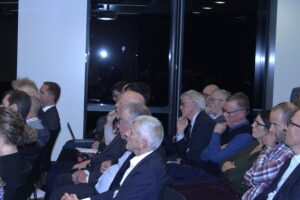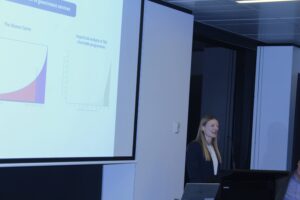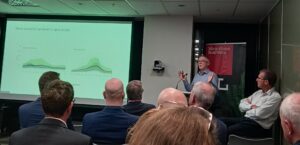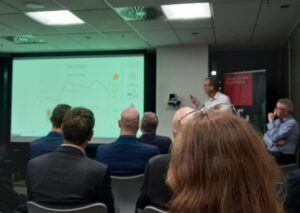LEANZ Corner
Bill English, Sophie Kunze, and Luke English from ImpactLab: Social Investment Tools to Guide Policy Changes
This seminar emphasizes the importance of data-driven approaches to measure positive social change and guide investment decisions in the social sector. Sir Bill English reflects on a decade of using measurement tools to improve policy and operations both within and outside government. He discusses tools that can bridge the gap between well-being policy and better outcomes for service recipients, especially in a tight fiscal environment.
It presents ImpactLab’s tools and methodologies for calculating SROI and measuring impact across various social programs and interventions. Sophie Kunze presents on measuring Social Return on Investment (SROI) as a guide for social investment decisions and operational improvements in the charity sector. She introduces the concept of social value and explains how SROI is calculated using three key drivers: scale, social value, and cost. She showcases ImpactLab’s work, including:
- The Mason Curve, which illustrates that 15% of people use half of government services
- An example of SROI calculation for a program called “Guardians of our Children.”
- Insights from the Charitable Sector Insights Report, providing a snapshot of New Zealand’s charitable sector. Find the report here: Charitable Sector Insights Report
Luke English provides an overview of ImpactLab’s housing work, which involves a Housing Impact Framework that considers housing interventions, population characteristics, investment tools, and related services.
Download the seminar slides here: ImpactLab x LEANZ Seminar Slides June 2024
Visit ImpactLab’s website here: https://impactlab.co.nz/




✜»✜«✜»✜«✜»✜«✜»✜«✜»✜«✜»✜«✜
Tony Baldwin and David Hunt: New Zealand’s wholesale electricity market: Fit for the future?
This seminar explores whether New Zealand’s wholesale electricity market (WEM) is fit for the future as the country transitions towards a highly renewable energy system. It outlines the current WEM structure, including the spot market, hedge market, and ancillary services market. It examines anticipated changes in the physical electricity system, such as the increasing share of intermittent renewables like wind and solar, the growth in distributed energy resources, and the rising demand due to electrification. It argues that a market-based approach is preferable over centralized approaches as it promotes competition, innovation, and investment efficiency. It proposes recommendations for “WEM 2.0,” including measures to improve accurate pricing, risk management tools, competition, and public confidence. It emphasizes the importance of capturing innovation and enabling demand-side flexibility to optimize the renewable energy transition while maintaining a reliable and cost-effective electricity supply.
Download the seminar slides here: LEANZ Wholesale Electricity Market Slides May 2024
The recommendations are based on the Market Development Advisory Group (MDAG)’s 2023 paper. Read the paper here: Price discovery in a renewables-based electricity system – Final recommendations paper


✜»✜«✜»✜«✜»✜«✜»✜«✜»✜«✜»✜«✜
James Every-Palmer KC and Daniel Kalderimis: Addressing Climate Change Through Tort Law
This seminar discussed the role of tort law in addressing climate change. it discussed the current landscape of climate litigation, the role of tikanga Māori (Māori common law), and climate change as an intergenerational externality with potential market and regulatory failures. It examined an alternative view inspired by the Coase theorem, suggesting courts could internalize externalities and overcome obstacles to state action. It proposed the concept of “climate comity,” drawing from private international law principles developed by courts for mutual benefit. The seminar also discussed the suitability of tort law to impose responsibility for “unreasonable” emissions or recognise environmental rights, to provide judicial guardrails against inadequate government action on climate change.
Download the seminar slides here: LEANZ Smith v Fonterra April 2024
✜»✜«✜»✜«✜»✜«✜»✜«✜»✜«✜»✜«✜
Ed Willis: The Impact of Copyright, Privacy, and Cybersecurity Law and Proposed EU Legislation on AI
Rewatch Ed Willis’s LEANZ Webinar on the Impact of Copyright, Privacy, and Cybersecurity Law and Proposed EU Legislation on AI.
